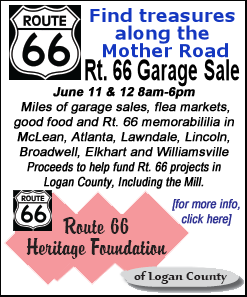| |||||||||
| |||||||||
He went on to appear in several films in the early 1980s, including the well regarded "Rumblefish" and "The Osterman Weekend," as well as the campy "My Science Project" and "The Texas Chainsaw Massacre 2." But alcohol and drugs continued to interfere with his work. Treatment at a detox clinic helped him stop drinking, but he still used cocaine, and at one point he became so hallucinatory that he was committed to the psychiatric ward of a Los Angeles hospital. Upon his release, Hopper joined Alcoholics Anonymous, quit drugs and launched yet another comeback. It began in 1986 when he played an alcoholic ex-basketball star in "Hoosiers," which brought him an Oscar nomination for best supporting actor. His role as a wild druggie in "Blue Velvet," also in 1986, won him more acclaim, and years later the character wound up No. 36 on the AFI's list of top 50 movie villains. He returned to directing, with "Colors," "The Hot Spot" and "Chasers." From that point on, Hopper maintained a frantic work pace, appearing in many forgettable movies and a few memorable ones, including the 1994 hit "Speed," in which he played the maniacal plotter of a freeway disaster. In the 2000s, he was featured in the television series "Crash" and such films as "Elegy" and "Hell Ride." "Work is fun to me," he told a reporter in 1991. "All those years of being an actor and a director and not being able to get a job
-- two weeks is too long to not know what my next job will be." For years he lived in Los Angeles' bohemian beach community of Venice, in a house designed by acclaimed architect Frank Gehry. In later years he picked up some income by becoming a pitchman for Ameriprise Financial, aiming ads at baby boomers looking ahead to retirement. His politics, like much of his life, were unpredictable. The old rebel contributed money to the Republican Party in recent years, but also voted for Democrat Barack Obama in 2008. Dennis Lee Hopper was born in 1936, in Dodge City, Kan., and spent much of his youth on the nearby farm of his grandparents. He saw his first movie at 5 and became enthralled. After moving to San Diego with his family, he played Shakespeare at the Old Globe Theater. Scouted by the studios, Hopper was under contract to Columbia until he insulted the boss, Harry Cohn. From there he went to Warner Bros., where he made "Rebel Without a Cause" and "Giant" while in his late teens. Later, he moved to New York to study at the Actors Studio, where Dean had learned his craft. Hopper's first wife was Brooke Hayward, the daughter of actress Margaret Sullavan and agent Leland Hayward, and author of the best-selling memoir "Haywire." They had a daughter, Marin, before Hopper's drug-induced violence led to divorce after eight years. His second marriage, to singer-actress Michelle Phillips of the Mamas and the Papas, lasted only eight days. A union with actress Daria Halprin also ended in divorce after they had a daughter, Ruthana. Hopper and his fourth wife, dancer Katherine LaNasa, had a son, Henry, before divorcing. He married his fifth wife, Victoria Duffy, who was 32 years his junior, in 1996, and they had a daughter, Galen Grier.
[Associated
Press;
Copyright 2010 The Associated Press. All rights reserved. This material may not be published, broadcast, rewritten or redistributed.
News | Sports | Business | Rural Review | Teaching & Learning | Home and Family | Tourism | Obituaries
Community |
Perspectives
|
Law & Courts |
Leisure Time
|
Spiritual Life |
Health & Fitness |
Teen Scene
Calendar
|
Letters to the Editor